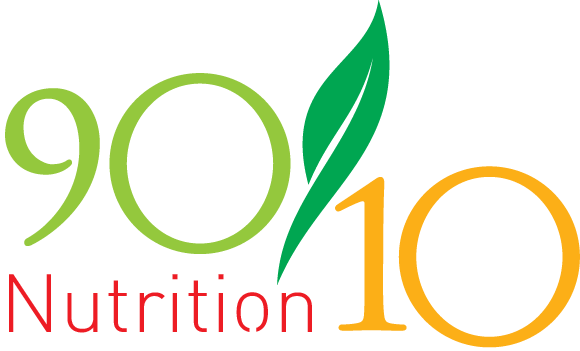So, I did this webinar last week on how digestion works because digestion is SO important. It literally ties into just about every single system in your body. It’s like the foundation of all foundations of your health. You’re taking vitamins? Great, but can you digest them and actually absorb them? You have food allergies? Did you know it could be because you aren’t digesting proteins in your stomach properly? You get sick a lot? Maybe you don’t have adequate stomach acid to kill parasites. Seriously…digestion is one of the keys to health. It’s not the only one but it’s one of the few big ones.
So, sit back and learn a little today on how digestion works. There are few things in this webinar that might just change the way you think. I’ve summarized the webinar below the recording but it’s worth sitting through the whole webinar.
Summary - Healthy Function
👉 Digestion is the chemical and mechanical breakdown of food.
👉 The goal of digestion is to reduce the food you eat into molecules small enough to be absorbed and utilized by the body.
👉 Digestion is a “North to South” process starting in the brain and ending with elimination in urine and feces.
👉 Digestion starts in the brain! The smell of food and the anticipation of food triggers processes in your digestive system such as salivation.
👉 Digestion continues in the mouth. Teeth break down food into smaller particles but carbohydrate digestion begins via salivary amylase in the saliva. This is why chewing your food thoroughly is important to digestion!
👉 Digestion in the stomach is extremely important. The stomach is all about acid. pH is anywhere from 1.5-3 in a healthy stomach. Protein digestion begins here in a healthy stomach.
👉 The next step is the small intestine. The first part of the small intestine (the duodenum) accepts the highly acidic food (chyme) from the stomach and triggers the pancreas and the gallbladder to do their jobs.
👉 The pancreas neutralizes the chyme with bicarbonate and then releases enzymes to digest proteins, carbs and fats.
👉 The gallbladder releases bile to emulsify fats.
👉 The second part of the small intestine absorbs nutrients from the now fully digested food via villi and microvilli.
👉 The parts that aren’t absorbed in the small intestine move into the large intestine where some parts are absorbed, some are recycled (such as water and bile) and some are converted into vitamins and utilized. The rest is eliminated.
Summary - Dysfunction
👉 Digestion is a process that works when you are relaxed (parasympathetic). It wasn’t designed to work during stressful times. In stressful times, priorities are on survival and functions other than digestion. However, in our modern world, we eat between meetings and while driving down a crowded highway. We eat in a stressed state!
👉 We also eat too fast and don’t chew our food. This isn’t some baseless thing your Mom used to yell about. You literally don’t digest carbohydrates as well if you don’t give your saliva a chance to start the process. Undigested carbs in the large intestine feed candida and other unwanted bacteria!
👉 Stomach acid is extremely important to digestion, which begs the question: Why do we have so many antacids and acid blockers in our society? Well, I’ll tell you! Because acid reflux and heartburn are misdiagnosed as a condition of TOO MUCH stomach acid when it’s more often a LACK of stomach acid that causes the problem. Whoa! How is that possible? Watch the video at about 25:00 to hear the answer.
👉 Lack of stomach acid also takes away one of your primary defenses against pathogens (viruses, bacteria, etc). Basically, the pathogens are proteins and stomach acid is all about breaking those proteins down. If you don’t have good stomach acid, these pathogens can thrive.
👉 Lack of stomach acid can also result in leaky gut. This is where your small intestine begins letting undigested molecules through when it normally would not. Then, your immune system sees the undigested molecules as invaders and begins attacking them. This leads eventually to allergies and autoimmune diseases.
👉 When poor digestion reaches the large intestine, it can result in disrupted bowel flora and such things as Crohn’s and IBS to name just a couple.
Summary - Big Ideas
👉 Digestion is a “North to South” process that starts in the brain
👉 Stomach acid is important and not a bad thing
👉 Poor digestion affects MANY of your body’s systems because it results in lack of absorption of necessary nutrients and undesired absorption of improperly digested substances
👉 Your immune system can be affected by poor digestion (autoimmune conditions)
👉 Digestion if affected by diet as well as lifestyle
Do You Have Good Digestive Function?
👉 Do you eat in a relaxed state?
👉 Do you chew your food thoroughly?
👉 Do you eat unprocessed and whole foods?
👉 Do you have enough stomach acid?
How To Test Your Stomach Acid
👉 Mix ¼ tsp of baking soda in 4-6 oz of water
👉 Drink on an empty stomach (such as first thing in the morning before food, coffee, etc.)
👉 Begin a timer and stop when you burp or at 5 min (whichever is first)
👉 You may need to do this 2 or 3 times in a row to be sure. Note that the burp should be from the stomach and not the kind you get from swallowing air while drinking.
👉 If you burp in under 3 minutes, you have decent/sufficient stomach acid. If you burp between 3 and 5 minutes, you have low stomach acid. Over 5 minutes is very low.
NOTE: This test is not exact and is only to be used as a baseline for further evaluation.
What To Do If You Have Low Stomach Acid
👉 Stop eating sugar, processed foods, excessive carbs, excessive alcohol and other gut irritants.
👉 Chew food thoroughly (30 chews per bite).
👉 Relax while eating and don’t rush through meals under stress.
👉 Include probiotics from fermented veggies in your diet (sauerkraut, kimchi, unsweetened kombucha).
👉 Consider supplementing with 1-2 Tbsp of Apple Cider Vinegar before meals.
👉 Consider further evaluation and help from a professional for things like HCl therapy.



Comments (2)
Interesting, thanks for sharing!
This was very interesting. Good info. Thank you!